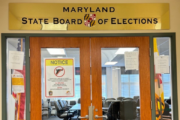President Barack Obama, his administration and several members of Congress have tried to convince Americans that the National Security Agency’s surveillance program is in their best interest and not violating their privacy.
But factually speaking, Obama went too far when he called the court overseeing the program “transparent,” something that a spying and surveillance entity is, by its nature, not.
The president spoke with veteran reporter Charlie Rose, who put up a full transcript of the conversation on his website. The discussion surrounded the Foreign Surveillance Intelligence Court, which approves warrants for intelligence agencies’ activities and gives them legal jurisdiction to carry out their spying.
Charlie Rose: So I hear you saying, “I have no problem with what NSA has been doing.”
Barack Obama: Well, let me finish, because I don’t. So what happens is then the FBI – if, in fact it now wants to get content, if, in fact, it wants to start tapping that phone – it’s got to go to the [Foreign Surveillance Intelligence Act] court with probable cause and ask for a warrant.
Rose: But has FISA court turned down any request?
Obama: Because – first of all, Charlie, the number of requests are surprisingly small, number one. Number two — folks don’t go with a query unless they’ve got a pretty good suspicion.
Note that Obama didn’t directly answer Rose’s question, so Rose flat out asks Obama if there should be more oversight of the court.
“Should this be transparent in some way?” Rose questions.
“It is transparent, that’s why we set up the FISA court,” Obama claims. “My concern has always been not that we shouldn’t do intelligence gathering to prevent terrorism but rather are we setting up a system of checks and balances?”
It’s an odd claim from the president considering the fact that the court conducts all its affairs in private, only briefing select members of Congress behind closed-door meetings. But the court does send a letter to Congress giving an update of its work. The most recent memo, posted by the Federation of American Scientists, allows us to answer Rose’s question: no, it the court doesn’t turn down requests very often.
In 2012, the memo states the court received 1,856 applications for warrants, 1,789 of which included requests for electronic surveillance.
“The FISC did not deny any applications in whole or in part,” the memo reads. “The FISC made modifications to the proposed orders in 40 applications.”
Let’s measure Obama’s transparency claim with the facts. The House and Senate Intelligence Committees are briefed on the court’s activities, but updates for the rest of Congress are few and far between.
And the court’s entire purpose is to give intelligence officials discretion — in secret — when trying to obtain a warrant. That way they can start surveillance without tipping off would-be targets. The only other option would be to go to existing courts that are transparent and do keep very public records.
In fact, secrecy is written into the law that established the court.
“The record of proceedings under this chapter, including applications made and orders granted, shall be maintained under security measures established by the Chief Justice in consultation with the Attorney General and the Director of National Intelligence,” reads Section 1803 under Title 50 of the U.S. Code.
Obama called the FISA court “transparent,” when actually it’s designed to be just the opposite. That’s why we’re awarding the president the Whopper of the Week, a distinction given out by the Washington Guardian to the worst examples of mistatements, false facts and untrue political spin by those inside the Beltway.







